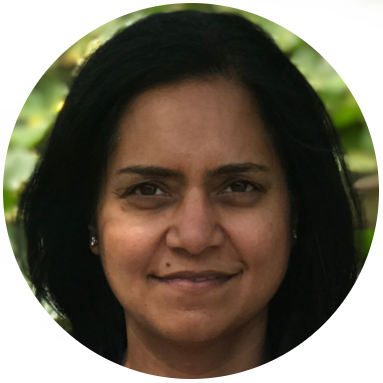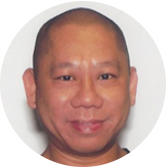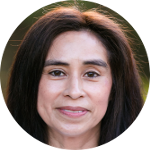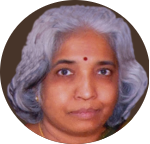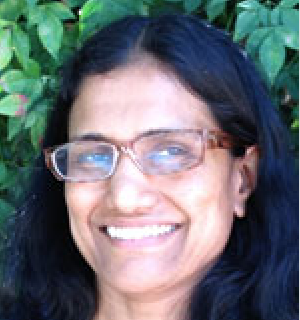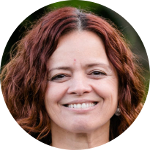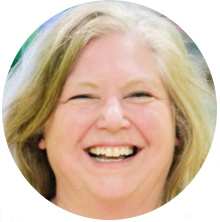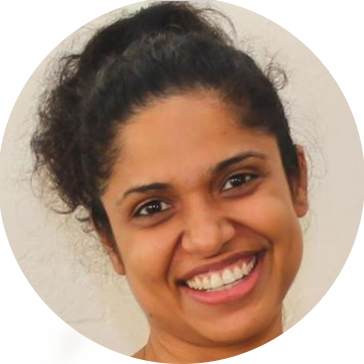You have practiced yoga, you have participated in a 200 Hour YTT program, and perhaps you have taught yoga classes. You feel you need to dive into the many aspects of yoga deeper, you feel you need to expand your yoga knowledge, expertise, and experiences, you feel an urge to find answers to many questions you have yourself and you have been asked by others. Your yoga journey continues. It is time to embark on a deep and principled 300 Hour Yoga Teacher Training (YTT) program. You have come to the right place. Please read on!
Worlds Yoga 300 Hour Yoga Teacher Training program is designed to provide:
- A deep understanding of the most important aspects of yoga – a mile deep rather than a mile wide and an inch deep.
- A strong focus on principles, as well as practical aspects of practicing and teaching yoga safely and effectively.
- A comprehensive understanding of the eight limbs of yoga, with focus on their benefits for body, breath, mind, and lifestyle of yoga practitioners.
- A substantial expansion, rather than repetition, of expertise gained in 200 Hour YTT programs.
The prerequisite for WY YTT 300 Hour program is completion of WY 200 Hour YTT program, or an equivalent of it from a registered Yoga School. Those who have completed their 200 Hour YTT program will receive 300 Hour Yoga Teacher certificate after they complete the 300 Hour program. They can then register with Yoga Alliance as 500 RYT.
The objective of the program is for Worlds Yoga 300 Hour YTT program graduates to achieve a level of understanding and expertise of yoga that enables them to think and reason about challenges and questions they encounter. This objective is achieved through a rigorous structured program that empowers trainees to think and reason, rather than just form, or adapt opinions.
Be One of the First Five to Apply and Save $505Program Components and Methodology
Worlds Yoga’s 300 Hour Yoga Teacher Training (YTT) program has three main components:
- Body, Breath, Mind, and Their Union: The program expands on trainees’ knowledge of body, breath, and mind beyond what they have learned in 200 Hour YTT programs. The mutual interactions and impacts of the state of each one on the other two are studied and incorporated into trainees’ practice and teaching.
- Yoga Journey Roadmap: The evolutionary nature of yoga practitioners’ experiences at the levels of poses, breathing, mind, and lifestyles, are studied and incorporated into trainees’ practice and teaching.
- Learn, Practice, and Share: Trainees go through the phases of learning, practicing what is learnt, and sharing what is practiced through teaching. In every phase rigor, precision, and discipline are emphasized and effective methodologies, techniques, and tools are utilized.
The objective of the program is for Worlds Yoga 300 Hour YTT program graduates to achieve a level of understanding and expertise of yoga that enables them to think and reason about challenges and questions they encounter. This objective is achieved through a rigorous structured program that empowers trainees to think and reason, rather than just form, or adapt opinions.
The following sections describe the three main components of Worlds Yoga 300 Hour YTT program in more detail:
- Body, Breath, Mind, and Their Union
- Yoga Journey Roadmap
- How do we define points A and B in the Yoga Journey Roadmap?
- What are the possible paths and milestones in between a point A and a point B?
- Which path of transition from a point A to a point B is the best for a given practitioner?
- What are the potential obstacles in the journey from a point A to a point B and how to overcome them?
- How to guide our students through their journeys?
- Learn, Practice, and Share
- What are the principles of practicing yoga?
- How are those principles applied?
- What happens when we don’t apply them?
- How do we reason about what is right and what is not right in practicing yoga?
- How do we evaluate alternatives?
Body is the temple of breath and mind. Breath is the life energy. We know one can’t stay alive for more than a few minutes without breathing. A sick mind can ruin a life and harm other lives around it. It has been proven that the three are closely related. The awareness and mindfulness of how body, breath, and mind work, as well as their mutual interactions and impacts on each other are necessary.
We study anatomy and physiology beyond the skeletal and muscular systems. We learn the anatomy and physiology of the respiratory, circulatory, and nervous systems in direct relations to our yoga practice and teaching.
In addition to learning about the anatomy and physiology of breathing, we go beyond physical body to fully comprehend the role of breathing in our yoga practice. We develop a good understanding of subtle body and the flow of energy in energy body.
We study and learn yoga philosophy as an integral part of yoga practice and teaching yoga. We study Patanjali’s Yoga Sutras as the bases of our study of yoga philosophy. Patanjali’s Yoga Sutras is the best source for understanding the role of mind in our yoga journey.
When we understand yoga philosophy, we realize that yoga encompasses every aspect of life. We learn how to live consistent with yoga philosophy in our daily lives.
Yoga practitioners begin their yoga journeys at different states of body, breath, and mind. They choose to travel different paths of progress. While the eventual destination is the state of yoga, the starting points, and the paths they take are not the same. Yoga Journey Roadmap establishes a framework within which we characterize starting points and milestones along the path. We examine the paths practitioners take as they move from one point to the next in their journeys.
The Yoga Journey continues along four dimensions concurrently and over practitioners’ lifetime. The four dimensions are postures and practice sequences, breath, mind, and lifestyle levels.
Along the posture dimension, a practitioner moves from one variation of a pose to the next challenging variation. Along the sequence dimension, a practitioner starts with practicing a gentle yoga sequence, grows into practicing vinyasa yoga sequences at primary, intermediate, and advanced levels. At each level the practice maybe uncomfortable at first, but because of practicing with enthusiasm and persistence without interruption it becomes comfortable.
Along the breath dimension, a practitioner first becomes aware of breathing, then learns different breathing techniques, then comes breath control. The next step in the journey is how to coordinate and synchronize breathing with movement.
At the mind dimension, a practitioner learns how to focus on breathing by listening to the sound of breathing, then learns how to sever the senses from external stimuli, continues to develop ability to focus and meditate.
Along the lifestyle dimension, a practitioner first begins focusing internally, then learns the social and personal responsibilities of yogis and yoginis and gets into the habit of continuous self-study. As a result of awareness of social norms, personal norms, internal focus, and self-study, lifestyle changes begin to occur.
In this component of the program, we will address important questions such as:
Developing a framework and the know-how for answering these and similar questions require an intellectual and experiential intense work that is appropriate for an advanced 300 Hour training program.
What we learn is our grounding for our yoga practice. What we practice is the grounding for our teaching of yoga. It is hard to teach what we have not learned carefully and deeply, and what we have not practiced enthusiastically with rigor and continuity.
We learn the principles of yoga practice that guide our yoga journey at posture and sequence level. We learn breathing techniques and control that guide our journey at breathing level. We learn yoga philosophy that guides our journey at the levels of mind and lifestyle. We practice postures and sequences, breathing, and yoga philosophy to gain personal experiential insights and to be prepared to share them with our students.
We learn how to share what we have learned and practiced, with our students. We learn how to help our students travel safely from one point to the next in their own yoga journeys. We guide them through their yoga journeys skillfully and with confidence.
We learn a framework within which our graduates address important questions their students will ask:
Our detailed framework for yoga practice enables us to arrive at answers to these questions by reasoning, rather than by just forming opinions.
Worlds Yoga 300 Hour YTT Program Tools
Worlds Yoga 300 Hour YTT program is supported by a set of tools that have been developed and used effectively in many YTT program sessions and yoga classes in Worlds Yoga over the past 10 years. This section provides an overview of these tools. There are three main tools:
- YSL
- Alignments and gazing of every asana
- Transitions from one asana to another, including breathing
- Yoga journey roadmaps for every asana from primary, to intermediate, and to advanced
- Practice sequences
- Mini Sequences
- Forward-fold
- Back-bend
- Twist
- Side-bend
- Core
- Hip
- Hamstrings, thighs, and Inner thighs
- Balance
- Arm balance
- Inversion
- Class Sequences
- Gentle Yoga A, B, and C
- Vinyasa Gentle A, B, and C
- Gentle Ashtanga
- Ashtanga Primary and Intermediate Series
- Vinyasa Moderate – Whole Body
- Vinyasa Moderate – Shoulders and Arms
- Vinyasa Moderate – Spine and Core
- Vinyasa Moderate – Hip and Hamstrings
- Vinyasa Strong – Balance Flow
- Vinyasa Strong – Flexibility Flow
- Vinyasa Strong – Integration Flow
- Vinyasa Strong – Strengths Flow
- Power Yoga
- Progressive Power Yoga
- Gentle Breath Flow
- Breath Flow Moderate
To study and learn, and successfully share our knowledge and experiences with our yoga community, including our fellow teachers, we need a tool that allows us to describe and communicate the following precisely, unambiguously, completely, and efficiently:
YSL (Yoga Sequence Language), is a semi formal language grounded in the principles of yoga practice. YSL to yoga teachers is what written music language is to musicians. The sharing of yoga knowledge and the results of creativity in yoga, have been hindered because such a tool has not been available before.
The graduates of Worlds Yoga 300 Hour YTT will be equipped with YSL, a powerful and flexible sharing tool. They will learn it in their training and use it extensively throughout the program and beyond.
Mini Sequences are well-defined, pluggable, and adoptable blocks of poses and associated transitions. They are bigger building blocks than individual asanas for building class sequences. Since Mini Sequences have the same starting and ending postures, they can easily be plugged into and out of a sequence without any impact on other parts of the sequence. Furthermore, Mini Sequences can be extended or reduced in length, and made challenging or easy, without impacting the rest of the sequence. These properties of Mini Sequences allow building sequences that can be adopted to different needs easily.
A sequence which would have 50+ asanas and associated transitions, will have much fewer Mini sequences, often no more than 10 Mini Sequences. This makes learning, remembering, and teaching sequences much easier.
Worlds Yoga 300 Hour YTT trainees will have a library of Mini Sequences described in YSL to work with. The library will include anatomical and functional Mini Sequences such as:
Worlds Yoga 300 Hour YTT trainees will have a library of class sequences documented in YSL. The library will include full sequences such as:
These class sequences, except Ashtanga Primary and Intermediate Series, have been developed using Mini Sequence methodology. They are provided with complete class descriptions that among other things characterize the level, prerequisites, and objective of the class. These classes together define a complete yoga curriculum that guide yoga practitioners from the start through their yoga journeys.
Worlds Yoga 300 Hour YTT trainees learn these classes and the relationships among them. These classes and their descriptions lay out a roadmap for practitioners’ yoga journey along asana and sequence dimensions. Together they are a complete yoga curriculum. The curriculum informs teachers about the objectives and contents of each class. It also informs practitioners as to where they are in their yoga journey and what to expect in each class.
Schedule
The Winter 2024 Worlds Yoga 300 Hour Yoga Teacher Training Program will meet one weekend a month for 20 months beginning on Saturday, Jun 1st, 2024, and culminates with graduation on Sunday, December 21st, 2025. Class times are 12:00 noon to 6:30 pm, with a 30-minute break. The program meetings are scheduled for the following dates:
- Jun 1 & 2, 2024
- Jun 29 & 30, 2024
- Jul 20 & 21, 2024
- Aug 24 & 25, 2024
- Sep 28 & 29, 2024
- Oct 26 & 27, 2024
- Nov 16 & 17, 2024
- Dec 14 & 15, 2024
- Jan 18 & 19, 2025
- Feb 01 & 02, 2025
- Mar 29 & 30, 2025
- Apr 26 & 27, 2025
- May 17 & 18, 2025
- Jun 28 & 29, 2025
- Jul 26 & 27, 2025
- Aug 23 & 24, 2025
- Sep 27 & 28, 2025
- Oct 25 & 26, 2025
- Nov 15 & 16, 2025
- Dec 20 & 21, 2025
Venue
WY 300 YTT program classes will be held at Worlds Yoga Fremont. The program meetings can be attended in person onsite or remotely live online. Fremont studio is located at 37353 Fremont Blvd Fremont, CA 94536; lobby is accessed from the back of the building.
Immerse yourself in what you LOVE – Apply Now – Go DEEPER in your practiceWorlds Yoga 300 Hour YTT Program Advantage
- Structured, rigorous, and unique approach
- Effective well-developed tools
- Post-graduation support
The following subsections elaborate on these advantages:
- Structured, rigorous, and unique approach
- Effective well-developed tools
- YSL, a semi-formal yoga language
- A library of Mini Sequences
- A library of full class sequences
- Post-graduation support
- Worlds Yoga offers Community classes that are taught by the graduates of WY YTT programs. These classes are free to anyone who likes to attend and practice yoga. This allows our graduates to gain teaching experience, expand their teaching skills, and build confidence.
- Worlds Yoga gives its graduates priority for assisting, subbing, and eventually teaching regular public classes in Worlds Yoga studios. At the time of this writing, more than 60% of Worlds Yoga teachers are graduates of Worlds Yoga YTT programs.
Worlds Yoga 300 Hour YTT program is firmly grounded in the deepest foundations of yoga. It has been built on those foundations systematically and rigorously. As such, Worlds Yoga 300 Hour YTT program is not a random collection of loosely related components. The strong foundation and rigorous structure of the program enable trainees to build and expand on it for the rest of their yoga journey and tackle the challenges on the way with confidence.
Worlds Yoga has developed tools that support the effective implementation of its approach. These tools have been tested and used for many years and many sessions of Worlds Yoga YTT programs. These tools are exclusive to Worlds Yoga YTT programs:
YSL enables yoga teachers to describe and document their sequences fully and unambiguously and share and publish them. YSL provides language facilities to describe asanas and transitions.
Mini Sequences are larger building blocks for developing easily maintainable and adaptable yoga class sequences. A YSL library of Mini Sequences provides many reusable Mini Sequences.
A YSL library of class sequences provides a complete yoga curriculum for yoga journey from the Gentle Yoga class sequence for those who are new to yoga, all the way to strong vinyasa class sequences.
Worlds Yoga is committed to helping its YTT program graduates succeed in expanding their knowledge of yoga, deepening their practice, and becoming successful yoga teachers.
One of the challenges new yoga teachers have, is how to get opportunities for teaching group yoga classes. Worlds Yoga provides its graduates with such opportunities in the following two ways:
In addition to community classes and providing regular teaching opportunities, Worlds Yoga provides its YTT graduates with priority participation in Worlds Yoga Continued Education Programs and events such as workshops and retreats by offering them significant discounts. Worlds Yoga YTT program graduates can also attend any sessions of ongoing YTT programs as guest participants.
Tuition
The tuition for Worlds Yoga 300 Hour YTT is $3,975 ($13.25/hour of the program meeting). A $1,000 deposit payment is required with the submition of the application. A payment plan is available.
Program attendees receive a 15% discount for purchases of Worlds Yoga class packs, memberships, and products as well as special discounts on retreats and workshops. This 15% disocunt is for purchases from the start of the 20 month duration of the program.
The standard and early bird tuitions are summarized in the table below:
| WY 200Hr Graduates Early Bird |
Early Bird | Standard | |
| Tuition | $3,320 | $3,470 | $3,975 |
| Deposit * | $1000 | $1000 | $1000 |
| Application Deadline | First Five Applicants or Monday, February 5th |
First Five Applicants or Monday, February 5th |
Saturday, May 25th, 2024 |
* Deposit must be submitted with application to hold space
Don’t GIVE-UP Your $505 SAVINGS – Don’t GIVE-UP Your SPOT – Submit your Application Today – Now – Here

